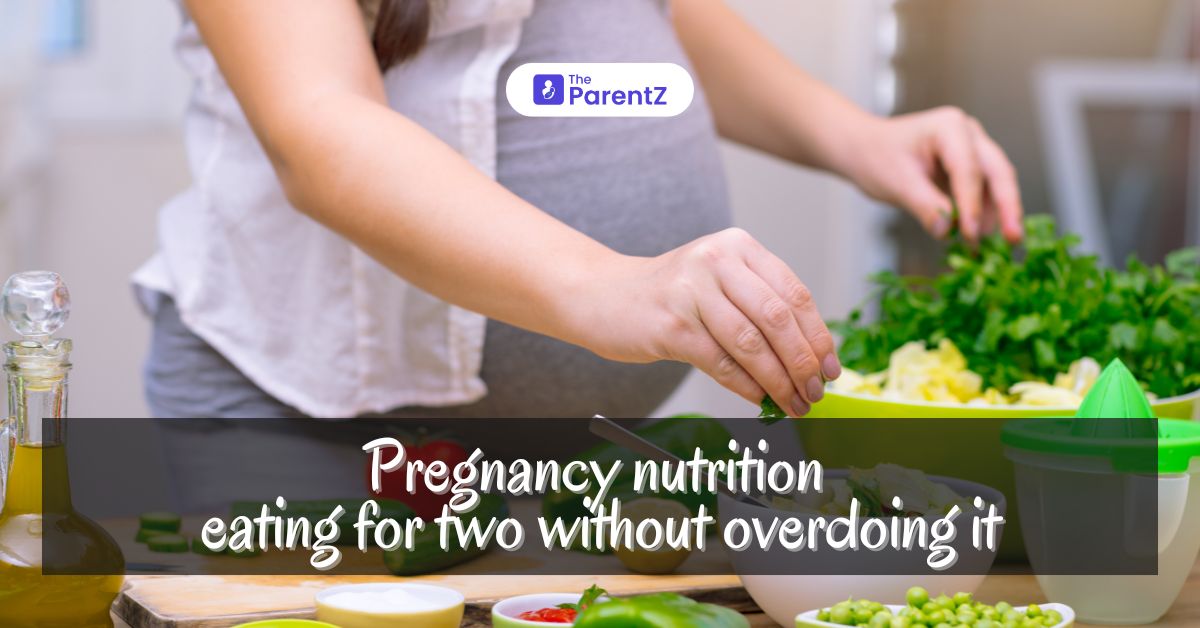Pregnancy is indeed the only time of your life when people encourage you to eat more. This becomes more obvious if you’re eating for both you and your tiny bean!
But does that mean you start loading double-patty cream cheese burgers and your favorite Oreo shakes? The old whisper says you should eat for two. The reality, however, is that you only need an extra 300 calls during your second and third trimesters. Figuring out what it equals to’? It just reciprocates an apple with pecan butter or a fully-loaded smoothie.
Read below this article to explore the essential facts about pregnancy nutrition and what dietary tips you should know so that you don’t overdo it.
The Nutritional Needs During Pregnancy
With endless bodily changes going on in a woman’s body during the pregnancy stage, it is important to understand your body’s nutritional needs. Here are the nutrients that must be present in your diet.
Folic Acid
It is essential for the development of your baby’s immune system and neural tube.
Iron
Required for maintaining oxygen transportation in the blood while also preventing anemia.
Calcium
Essential for bone development in babies and bone health in mothers
Protein
Protein plays a crucial role in supporting fetal growth and the repair of damaged maternal tissues.
Omega-3 fatty acids
Omega-3 fatty acids are essential for a baby’s brain and eye development.
Vitamin D
Vitamin D is essential for bone development as it regulates the absorption of calcium and phosphorus.
Portion Control
‘Eating for two’ is a common phrase used by family members and friends when it comes to the diet of a pregnant woman. However, is this really true? And do you actually need to eat a diet for two? No, according to a study, you only need 300 more calories than your regular diet. 300 calories is just about a healthy snack or a fruit with some yogurt.
Did you know that overeating during pregnancy can result in extreme weight gain, which increases the risk of hypertension and gestational diabetes?
Therefore, it is best to seek recommendations from your pediatrician about the right portion size of your meals and how you can meet your nutritional needs by incorporating nutrient-dense foods into your pregnancy diet.
Nutrient-Dense Food To Add To Your Diet
Here are some nutrient dense food recommendations that can help you match your nutritional needs without much effort.
- Fruits and vegetables: These are loaded with vitamins, minerals, and essential antioxidants. Berries, in particular, are a powerhouse of nutrition.
- Whole grains: whole grain bread, quinoa, brown rice, and oats are rich in vitamins, minerals, and fiber.
- Dairy Products: Dairy products, such as milk and cheese, are a wonderful source of calcium, vitamin D, and protein. However, make sure you pick low-fat dairy products.
- Dry Fruits and Seeds: These ingredients, such as walnuts, almonds, and flax seeds, are rich in omega-3 fatty acids, which are crucial for brain development.
- Lean Protein: Other sources of lean proteins include nuts, meats, eggs, fish, or tofu that play a significant role in fetal development.
- Water: The importance of hydration can never be stressed enough. So make sure you drink at least 8–10 glasses of water a day for increased blood volume and to maintain other body functions.
Conclusion
Pregnancy doesn’t means you need to eat for two for a healthy childbirth. While weight gain during pregnancy is absolutely normal, it can be an alarm if it’s too low or too high. Therefore, it is essential to keep track of your pregnancy weight while also ensuring you add the essential nutrients to your diet. You must also ensure your regular routine visits to your doctor to ensure your utmost health.





Be the first one to comment on this story.